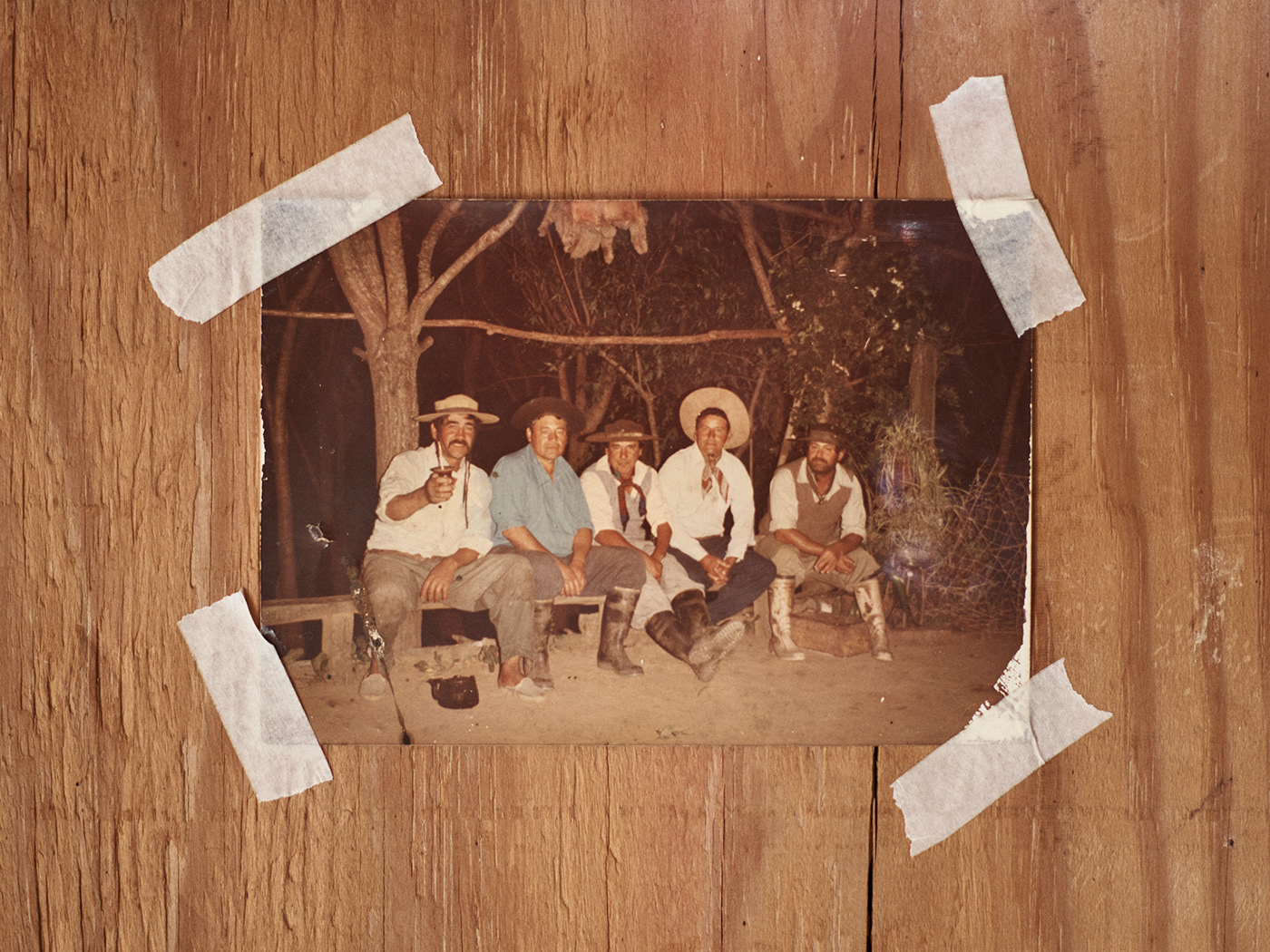
I believe that each geographical area, in its distinctive conformations, corresponds to an archetype of man.
If there is one place where this is particularly true, I discovered, it is the Pampas of Argentina.
Places of immensity, of boundless extension.
Its inhabitants somehow coincide in these characteristics.
Linear, simple, stoic and pragmatic men.
After a series of "investigations",
more like a blindly pointed finger on the map,
I ended up choosing a rather unknown place even in Argentina itself:
Las Islas de Las Lechiguanas, Entre Ríos.
This randomness, perhaps voluntarily, applies to the history as well, which could resemble a thousand others in the country.
¡Soy más campero que el mate!
literally "I'm more rural than yerba mate!"
It is an expression that I have heard repeated several times, in a tone full of pride, as if to describe the most worthy dimension of traditional life possible.
The protagonist of the series is an authentic gaucho, Buenaventura Piquet, known as Grucho.
Born in 1958, as he himself loves to recite in a traditional Payada (rhymed and sung verses), en la orilla del Rio del Paranà y del Rio del Ibicuy.
It is in fact the branch of these two rivers that outlines and originates the island Las Lechiguanas
The Parana is an ancient river.
It originates in Brazil on the border between the three Brazilian states of Minas Gerais, São Paulo and Mato Grosso do Sul.
It travels over 4000 km before arriving in Argentina and meeting the Ibicuy river.
The flow of the river brings all the magic and ancient mysticism of the native populations and the lands from which it originates.
It mixes, deposits and impregnates the banks with all the energy of the river, of its vital, natural, supernatural force.
Life on the island is solitary, spartan, without any comfort.
There are very few now who continue to live there.
Even fewer are those who were born there, on the bare earth. When you had to reach the mainland by crossing the river in a canoe, dragging the horse to swim through, and then returning in the same way with a midwife, who could assist the women in childbirth, and in the first days of life of the newborn.
This is how Grucho was born, on the island of Lechiguanas.
In the exact place of his birth now remain only a few stones of the ancient house, and the tomb of his parents who rest right there where his life began.
Grucho knows this land palm by palm, literally.
His connection to it is deep and visceral, to the point that it is as obvious for him as it is for us to have sensitivity in the extremities of the body, in the toes or in the hair.
He can feel what is happening on his land.
He always knows where his cattle flocks are, when some animal is sick, or exhausted from fatigue after having tried to free his legs from the quagmire, bent down to drink from the river.
He reaches them, sometimes spends days with the animals, takes care of them, heals them, until they return in strength.
He brings back the horses that roam free in boundless terrain, often several miles away.
He uses a whistle and some incomprehensible verse, but most of the time they are too far away to just have heard the sound.
Yet, assertively, they return.
Everything on the island exists on a fine line between real and surreal.
Like the magic ceibo, a huge coral tree with woody attributes that look like human ones.
Considered sacred and magical by all generations, past and present.
Capable of benevolent miracles and perfect curses, according to the circumstances and intentions of the people who get to meet it.
Through this series of photographs, Grucho introduces us to his world.
He welcomes us into his home, into his daily life.
He accompanies us to the places where he works, which he frequents.
He introduces us to the friends and people he meets.
A little through his figure, a little through his eyes.
And a little through his words:
Aqui nacì compañero,
acqui, ché, me reì.
A la orilla del Paranà y del Río
del Ibicuy.
Crecieron todas mis ansias
de campero y islero.
Soy el gaucho màs certero
que hubo en este lugar.
Recorriendo los parajes
que usted los ve,
por aquì.
En la orilla del Paranà
y del Rio del Ibicuy.
- Grucho Piquet




























































